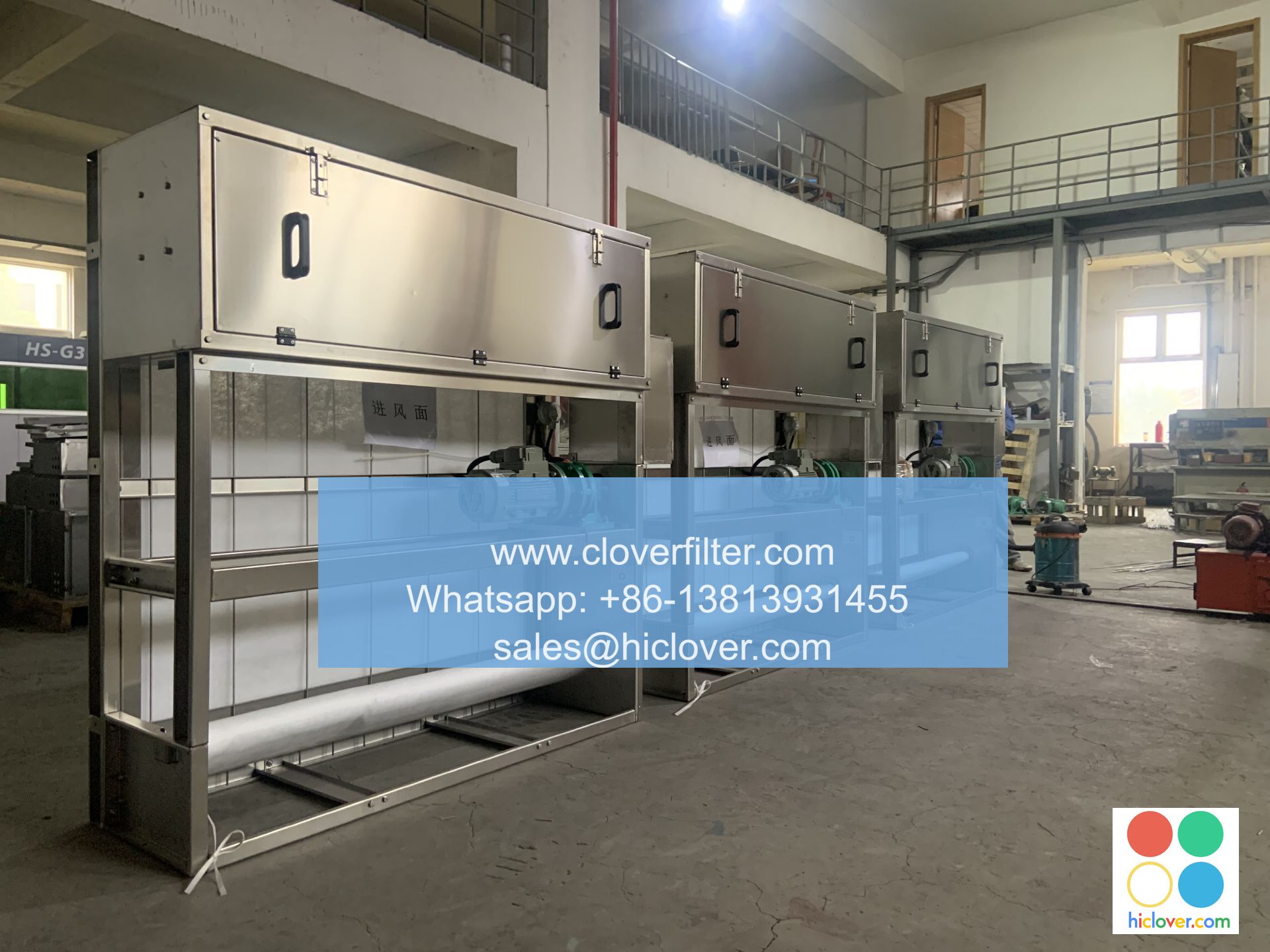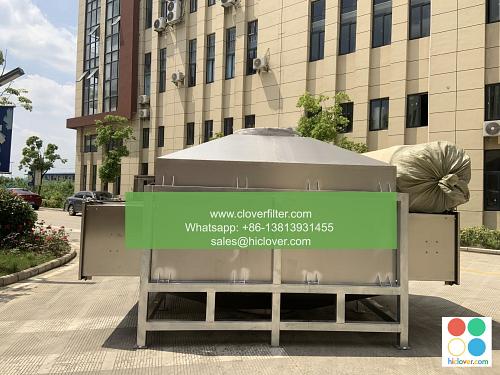The Benefits of Automated Air Filtration in Quebec Pharmaceutical Manufacturing

The pharmaceutical manufacturing industry in Quebec is a significant sector that requires strict control over the environment to ensure the quality of products. One of the critical aspects of this control is air filtration, which plays a vital role in removing contaminants and particles from the air. Automated air filtration systems have become increasingly popular in recent years due to their numerous benefits, including improved efficiency, reduced costs, and enhanced product quality.
In a pharmaceutical manufacturing setting, air filtration is crucial to prevent contamination and ensure the purity of products. Automated air filtration systems use advanced technologies, such as HEPA filters and activated carbon, to remove particles, bacteria, and other contaminants from the air. These systems can be programmed to monitor and adjust the air quality in real-time, ensuring that the environment remains clean and controlled.
One of the primary benefits of automated air filtration in pharmaceutical manufacturing is improved efficiency. Traditional air filtration systems require manual monitoring and maintenance, which can be time-consuming and prone to human error. Automated systems, on the other hand, can operate independently, freeing up staff to focus on other critical tasks. Additionally, automated systems can optimize air flow and filtration rates, reducing energy consumption and minimizing waste.
Automated air filtration systems also offer significant cost savings. By reducing the need for manual maintenance and minimizing energy consumption, these systems can help pharmaceutical manufacturers reduce their operating costs. Furthermore, automated systems can extend the lifespan of equipment and reduce the risk of product contamination, resulting in fewer costly recalls and regulatory issues.
In terms of product quality, automated air filtration systems are essential for ensuring the purity and integrity of pharmaceutical products. By removing contaminants and particles from the air, these systems can prevent contamination and ensure that products meet the highest standards of quality. This is particularly important in Quebec, where pharmaceutical manufacturers must comply with strict regulations and guidelines set by Health Canada and other regulatory agencies.
Another benefit of automated air filtration systems is their ability to provide real-time monitoring and data analysis. These systems can track air quality parameters, such as particle counts and microbial levels, and provide detailed reports and analytics. This data can be used to optimize air filtration protocols, identify potential issues, and implement corrective actions to prevent contamination.
In addition to their technical benefits, automated air filtration systems also offer a range of practical advantages. For example, these systems can be integrated with existing manufacturing systems and infrastructure, minimizing disruption and downtime. Additionally, automated systems can be designed to meet the specific needs of each manufacturing facility, taking into account factors such as air flow rates, particle counts, and equipment layout.
Despite the many benefits of automated air filtration, some pharmaceutical manufacturers in Quebec may be hesitant to adopt these systems due to concerns about cost, complexity, or regulatory compliance. However, the benefits of automated air filtration far outweigh the potential drawbacks, and manufacturers who invest in these systems can expect to see significant returns in terms of improved efficiency, reduced costs, and enhanced product quality.
In conclusion, automated air filtration systems offer a range of benefits for pharmaceutical manufacturers in Quebec, from improved efficiency and reduced costs to enhanced product quality and regulatory compliance. By adopting these systems, manufacturers can ensure the purity and integrity of their products, optimize their manufacturing protocols, and maintain a competitive edge in a rapidly evolving industry.
FAQs
Q: What is the primary benefit of automated air filtration in pharmaceutical manufacturing?
A: The primary benefit of automated air filtration is improved efficiency, as these systems can operate independently and optimize air flow and filtration rates.
Q: Can automated air filtration systems be integrated with existing manufacturing infrastructure?
A: Yes, automated air filtration systems can be designed to meet the specific needs of each manufacturing facility and integrated with existing systems and infrastructure.
Q: How do automated air filtration systems ensure regulatory compliance?
A: Automated air filtration systems can provide real-time monitoring and data analysis, ensuring that air quality parameters meet regulatory standards set by Health Canada and other agencies.
Q: What is the typical payback period for investing in an automated air filtration system?
A: The payback period for investing in an automated air filtration system can vary depending on factors such as system cost, energy savings, and reduced maintenance requirements. However, many manufacturers can expect to see a return on investment within 2-5 years.
Q: Can automated air filtration systems be customized to meet the specific needs of each manufacturing facility?
A: Yes, automated air filtration systems can be designed to meet the specific needs of each manufacturing facility, taking into account factors such as air flow rates, particle counts, and equipment layout.

